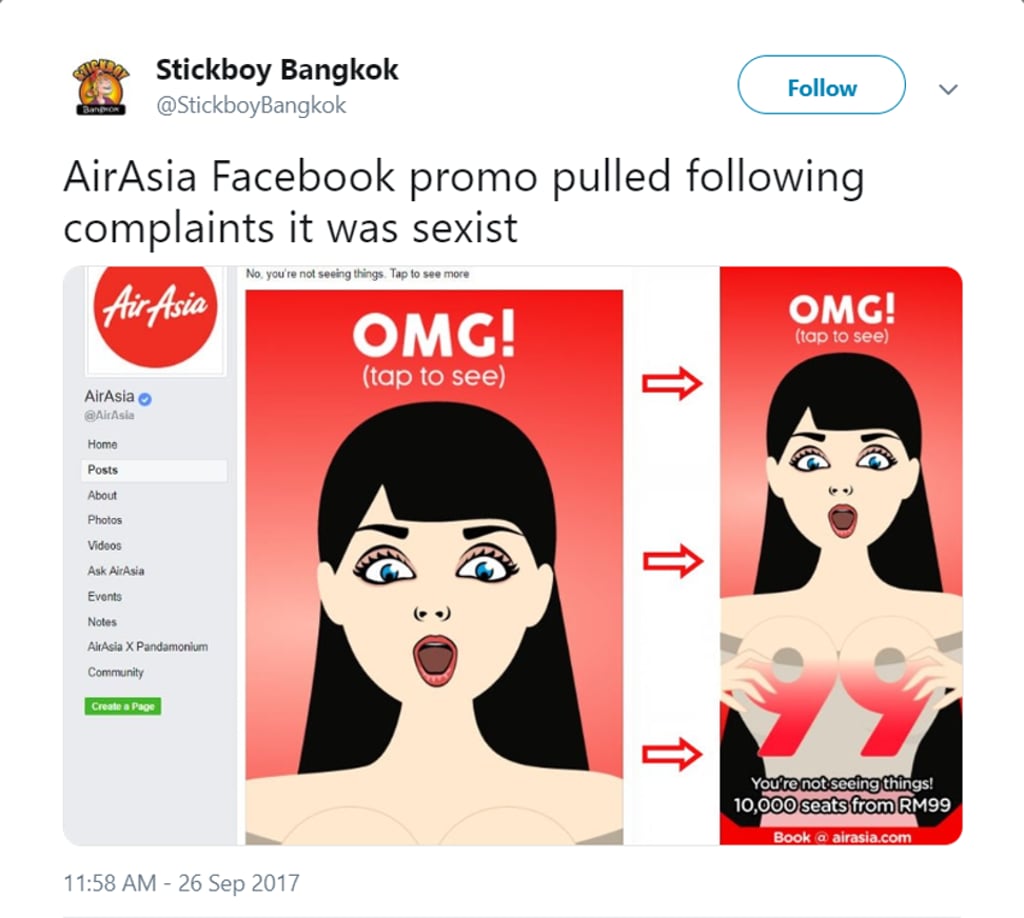Destinations known | Is AirAsia promoting sex tourism with ad inviting passengers to ‘Get off in Thailand’?
- In campaign for new Brisbane to Bangkok route, budget carrier seemed to equate disembarking from an aeroplane with sexual gratification
- Thailand’s sex tourism industry is no laughing matter, with sex workers particularly vulnerable to human rights abuses

On March 22, Melinda Liszewski nearly choked on her dinner. The women’s rights activist and campaigner was dining out in Brisbane when she noticed a bus drive by; on the side of it was an advertisement for Malaysian low-cost carrier AirAsia’s upcoming route between the capital of Queensland, in Australia, and Bangkok, Thailand, which will take off in June. The ad featured an image of a typical Thai street at night, traffic-choked and neon-lit, with the words “Get off in Thailand” splashed across it.
Liszewski snapped a photo and uploaded it to Twitter with the caption, “a dog whistle promoting #sextourism brought to you by low budget low ethics airline @AirAsia”. Soon, media outlets from the Bangkok Post to the BBC were reporting on the budget carrier’s campaign, which appeared to make light of Thailand’s somewhat seedy reputation. By March 25, AirAsia had announced that it would be removing the offending ads from Brisbane’s buses and airport.
Coralie Alison, director of Collective Shout, a movement against the objectification of women that also counts Liszewski among its number, told French news network France 24: “We believed this ad was a direct invitation to sex tourists […] Using the bodies of women and children for sexual services should never be the punchline.”
It is not the first time that AirAsia – the founder of which, Tony Fernandes, was awarded the Global Empowerment Award at Southeast Asia’s Women of the Future Awards, on March 21 – has ventured into dubious marketing territory. About a decade ago, the airline invited passengers to make reservations for “the seat, not the girl” next to a picture of an attendant leaning against a seat marked by a reservation card that read “I’m hot”. And in 2017, an animation posted on Facebook featured a wide-eyed, open-mouthed and seemingly bare-chested woman encouraging internet users to “tap to see”.

Last year, Thailand’s ruling military junta ran a campaign of its own, attempting to clean up the country’s image internationally and appeal to voters ahead of recent elections, the results of which are not expected to be released until May. “The Tourism Authority of Thailand (TAT) […] strongly opposes any form of sex tourism,” said the government body, in a statement devoid of any double entendres.
